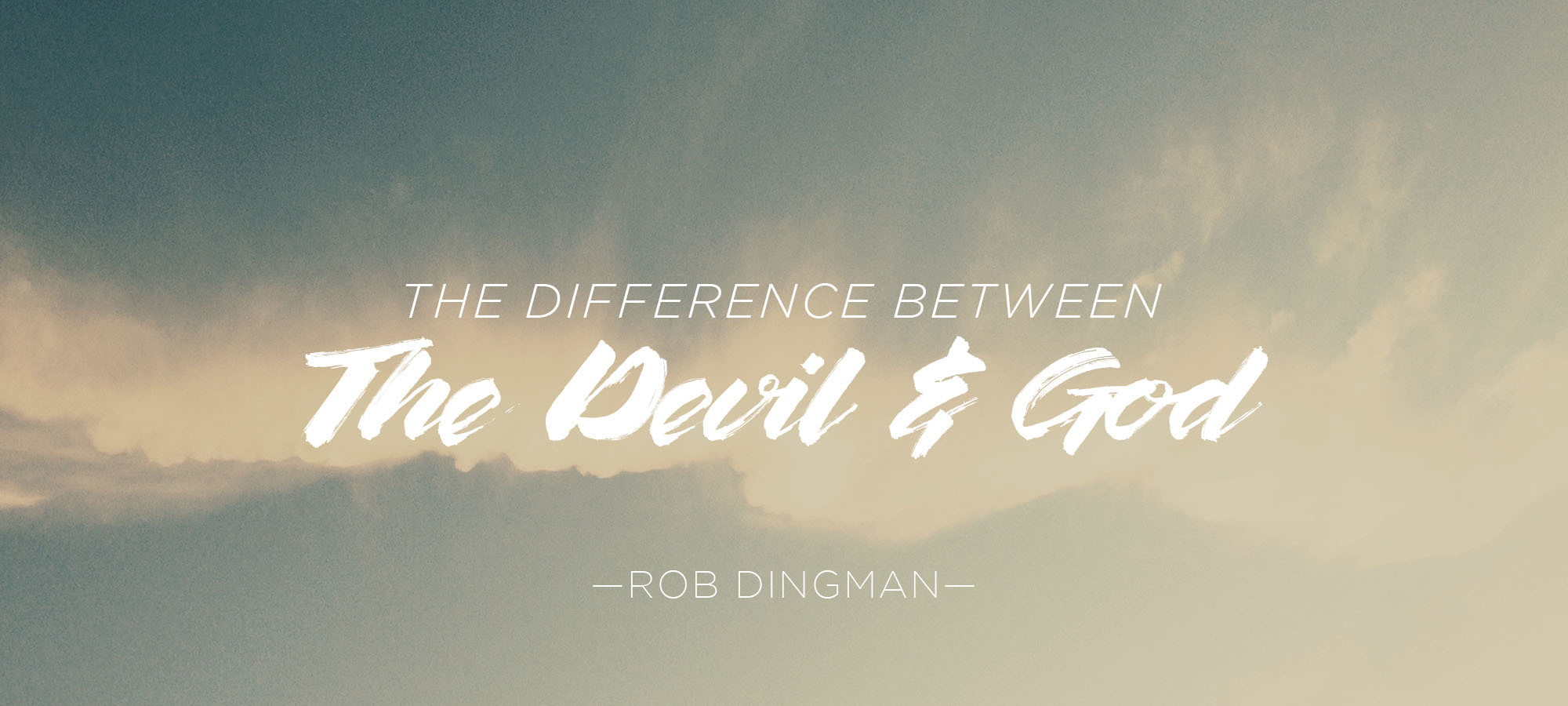
I once watched a debate between Frank Turek and Christopher Hitchens. The topic was, “Which explains the existence of the universe better, theism or atheism?” Frank was loaded with points, facts, and spoke easily and effectively. Christopher responded with disdain and contempt. He did not quote facts, cite studies or use any hard science at all. The gist of his reply was, “I hate God. So, if I don’t tell God how fabulous He is, I’m going to hell? Is that it?” The audience’s sympathy obviously lay with Christopher, and they cheered him often during the debate. Frank was dead in the water. He didn’t make any headway in the face of such contempt and engage-less debate.
I couldn’t answer that, either, and it started me thinking. Christopher’s big point was God is egocentric and arbitrarily demands worship where none is deserved. People resonated with that and showed their agreement. But Christopher is really wrong. Do you know why? Because Christopher can’t tell the difference between the devil and God.
Here’s how the devil became the devil.
He was created to be an amazing, angelic being. Somehow he began to consider his own beauty over that of God. This is what God says of him: “Your heart was lifted up because of your beauty; you corrupted your wisdom by reason of your splendor. I cast you to the ground; I put you before kings, that they may see you” (Ezekiel 28:17).
This angel turned away from seeing the eternal glory of God and began to contemplate his own created beauty. And God tells him he destroyed his wisdom in so doing. What is any glory in comparison to the glory of the only true God? There is no other glory. This is where the angel began to be the devil:
“How you have fallen from heaven, O star of the morning, son of the dawn! You have been cut down to the earth, You who have weakened the nations! But you said in your heart, ‘I will ascend to heaven; I will raise my throne above the stars of God, And I will sit on the mount of assembly In the recesses of the north. I will ascend above the heights of the clouds; I will make myself like the Most High.’ Nevertheless you will be thrust down to Sheol, to the recesses of the pit” (Isaiah 14:12-15).
The angel thought that being God means power and glory, and evidently, thought, “Hey, I got power! I got glory! Why aren’t I God? Why should He be God? I want to be God!”
What does it mean to be God?
What makes Him God? We immediately think of the attributes of God: He is everywhere at once (omnipresent), knows everything (omniscient), is all-powerful (omnipotent). What else do we think makes Him God? He is the Creator, eternal (thus, not created), holy, personal, outside of time, not limited in any way. He is glorious, blessed forever, satisfied within Himself (Father, Son, Holy Spirit), and therefore, doesn’t need anything outside Himself. He doesn’t need the universe to bow down and worship Him. He doesn’t have a crisis of identity such as: “Wow, nobody worships Me! That really hurts My feelings.” I have taught this subject before and asked the question, and people generally answer along these lines.
But there came a point when God took all the attributes that we consider intrinsic and essential to being God and laid them aside.
He became born as one of His creations, a human being. Paul speaks of this in Philippians 2:
“Have this attitude in yourselves which was also in Christ Jesus, who, although He existed in the form of God, did not regard equality with God a thing to be grasped, but emptied Himself, taking the form of a bond-servant, and being made in the likeness of men. Being found in appearance as a man, He humbled Himself by becoming obedient to the point of death, even death on a cross. For this reason also, God highly exalted Him, and bestowed on Him the name which is above every name, so that at the name of Jesus every knee will bow, of those who are in heaven and on earth and under the earth, and that every tongue will confess that Jesus Christ is Lord, to the glory of God the Father” (Philippians 2:5-11).
Jesus has the form of God, meaning essence. It’s who He is. Unlike the devil, He was not trying to be equal with God: He is there already. He is God.
But then Jesus did not consider His position and essence as something to hold onto at all costs. To obey the Father’s will, He emptied Himself. This is a mystery, because we, as human beings, cannot change our essence. I can change my shirt. I can take off my ripped t-shirt, and change into a shirt and tie, and look better on the outside, but I can’t change my arm. It’s part of me. It would be cool if I could exchange my arm for one that looked like the Hulk with lots of muscles. But Jesus, laying aside His attributes, would be like me laying aside my arms, my legs, my internal organs, my bones. He laid aside what we would consider essential to being God and took the form (essence) of a slave. The form of God merging with the form of a slave is not a contradiction. The two co-exist. He did not stop being God. He was God even without all the things that we consider essential to being God.
When Jesus was asked by His disciple, Philip, to show them the Father He said: “Have I been so long with you, and yet you have not come to know Me, Philip? He who has seen Me has seen the Father; how can you say, ‘Show us the Father’?” (John 14:9).
Imagine the disciples looking at Jesus, trying to see the glory, the power, earthquakes, angels crying out, “Holy, holy, holy is the Lord God Almighty!” All there is to see is a man about their size, looking back at them with amazement (“You guys don’t get who I am!”) But He said it. When you see Jesus, you see what God is really like.
Being in appearance as a man (like my shirt sleeve), He humbled Himself and became obedient to the point of death. This is really the important point: He humbled Himself. He is God, but He did not think about Himself; He thought about the Father first and others second. Nobody made Him submit; He submitted Himself to the Father. He voluntarily took a position that was concerned, not with Himself, but with all others. He served God and all other people by giving His life to make propitiation for them. No one has humbled himself more nor served more people than Jesus.
This is why God is going to make the whole universe of intelligent creatures bow down before Jesus and acknowledge that Jesus is God. Jesus clearly shows us who God really is, not a tyrannical CEO at the top, ordering people around, making things go His way or else. He is the one who loves and cares about people far below Him who despise and hate Him, and will even give His own life to save them. He does not think about Himself, but about others. He is humble.
Humility is the essential nature of God. This is what makes Him God.
All the power, knowledge and abilities are cool but, in His mind, are not essential to who and what God is. He does not think on Himself but thinks on others. I imagine someone saying, “Okay, that’s cool, but how important is this, really?”
Well, the Bible says I am nothing without love. But love means suffering long with the Beloved and being kind. If I care more about myself than the Beloved, I won’t love the Beloved. The Beloved is a pain to live with. But if I don’t think about my own personal comfort, then I can value the Beloved more than myself and preserve the relationship at all costs because that’s what love does. The Bible says God is love. And without humility there is no love. Humility is the precursor for love.
How about obedience? Obedience cuts across our personal comfort. At some point, it will be personally inconvenient to obey the one to whom obedience is due. If I value my own comfort more than my obligation, I won’t obey. Jesus was obedient to the point of death. No humility, no obedience.
How about faith? If I am thinking on myself and my wisdom and abilities, I am not going to depend on someone else. Without humility there is no faith.
Learning requires humility. If I think I know it all, I am not going to listen to someone who I consider beneath me. What can he show me? Humility says, I know some but not all. A wise man is humble and keeps learning. Without humility there is no learning.
Think about any good character trait. The basis for that trait is humility. It is the source of every good thing. And God is good because He is humble. That is what it means to be God.
If you reverse it, you find that every evil thing comes from pride and arrogance, which is thinking more of myself than is warranted. Arrogance means only I am important, and I can be indifferent to those around me. I can treat them any way I want because they aren’t important. I can be brutal. I will be ignorant, because no one can teach me anything. I will be disobedient, unloving, undependable and incapable of keeping a relationship together.
This is really like the devil. He is not humble; he thinks only of himself. He would not and could not disregard himself to serve someone else. He only wants to serve himself, and he wants everyone else to serve him too.
God shows us through the example of the devil that pride and desire for personal glory is not worthy.
It leads to every wicked thing. God shows us through Jesus that humility leads to every good thing. Humility is worthy of glory and honor.
So, to get back to Christopher, he is actually right in being disgusted at a being who is bent on self-glory. But he is angry at the wrong person. Everything he despises, God despises too. Christopher attributed the pride of the devil to God and ignored Jesus, who serves and blesses the world. That is unworthy and wrong.
Christopher is no longer among us. He now knows the truth. It’s too late for him to change his mind about the God he despised. But how about you? Can you tell the difference between the devil and God?









